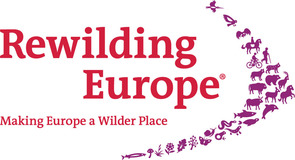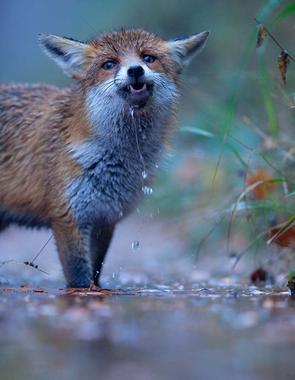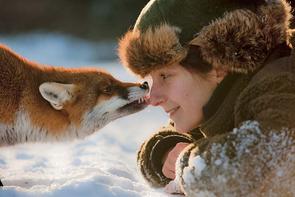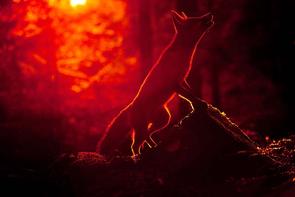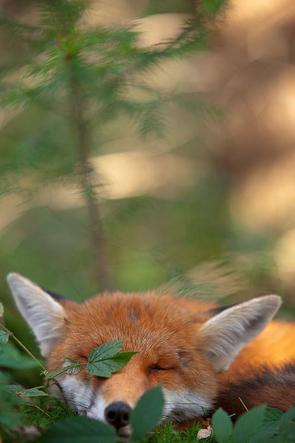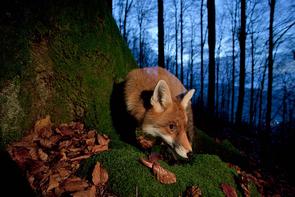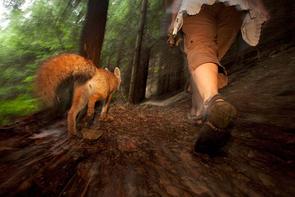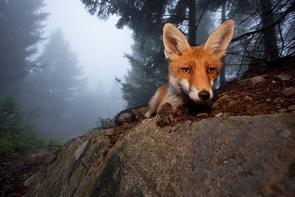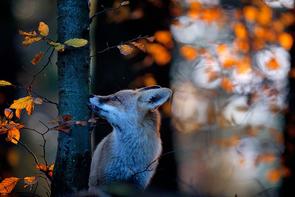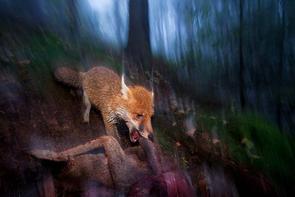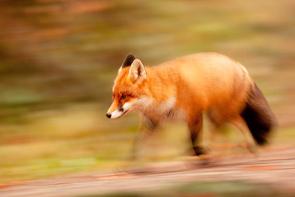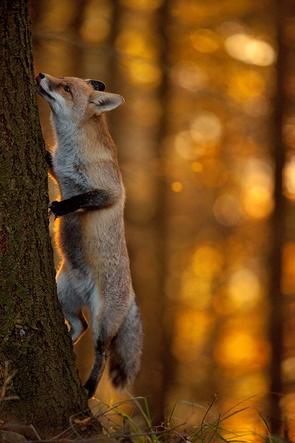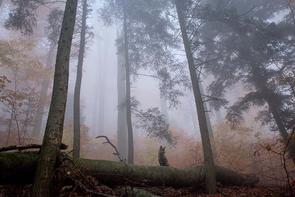Winner: Klaus Echle - Germany
Klaus Echle was born in 1964 in Oberwolfach in the Black Forest where he grew up as a "pub-kid" in a family of restaurateurs. After almost ten years as a chef he finally found his calling in 1988 and began a career as a forestry engineer, i.e. forest ranger.
Before he had even completed his studies, he became actively involved in nature conservation. This shaped his focus and approach to photography: to show behavioural patterns, ecological context, endangered species and habitats, and the relationship between humans and nature/animals in a visually appealing and artistic way. This was the beginning of his career as a "picture story teller". Although his travels have led him to Alaska, Canada, Malaysia, Florida, Bulgaria and Greece, the beauty and the distinct features of the local flora and fauna, particularly in the Black Forest region, are especially dear to him.
In 2003 he won the European Wildlife Photographer of the Year award. His images have been successful at different competitions, including securing him prizes and awards such as European Wildlife Photographer of the Year, Wildlife Photographer of the Year and Glanzlichter.
His photo projects continue to be driven by the wish to stir up enthusiasm for the distinctive features of the local environment and inspire new points of view.
www.echle-naturfoto.de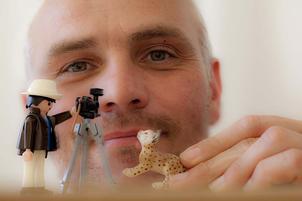
Project: Sophie's World - An Eventful Affair with a Vixen
At the beginning of his professional training as a forest ranger 21 years ago, Klaus Echle was already faced with the apparently problematic coexistence of humans and wild animals. This is why it is of great concern for him to use his "picture stories" to promote better relations and more tolerance and to inspire enthusiasm for local wildlife.
Especially foxes - visually a quite attractive species - have a rather bad public reputation. Despite wide-ranging public information campaigns and statistical evidence on the topics of fox tapeworm and rabies, a large proportion of the population still considers these animals to be dangerous or damaging. Because of their ability to learn and adapt well, their population density is nowadays actually often larger in settled areas than in the forest. Semi-natural gardens with compost heaps, bowls to feed pets or bags of rubbish along the streets provide many foxes with an easy food supply.
The photographic realization of the story about the vixen "Sophie" was kicked off following two phone calls. "Herr Echle, you are the forest ranger around here and wild animals are your responsibility, aren't they?", began the first call, which continued like this: "I really have no problem with wild animals, but a fox has no business being in my garden. Please deal with this and ensure it doesn't stroll on my property anymore!"
Depending on the time of year and natural cycle, similar phone calls are received regarding conflicts with martens, dormice, bats or squirrels at feeding places for birds.
While patrolling his district in early summer shortly after this excited phone call, Klaus Echle had the chance to observe a young fox. In the same week a hunter called to tell him that she had seen a young fox playing near a raised hide while she was out there. As it turned out it was the same animal. The hunter, a professional forestry scientist is just as curious and enthusiastic about nature as Klaus Echle. Together they succeeded in accompanying the vixen "Sophie" for more than half a year. The animal began to show great trust towards her two human companions and shared some of her daily routine with them - however, she did not trust any other people or vehicles and became naturally timid when anybody else approached.
It is my wish that wild animals in our surroundings be met with the same equanimity and tolerance as the vixen "Sophie" showed us in this half year.
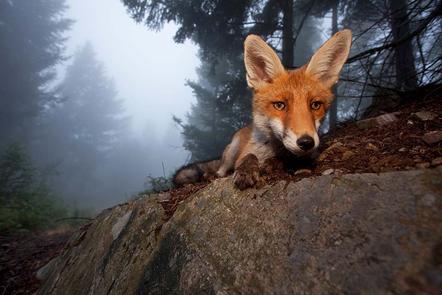
Portrait
Relaxed and yet attentive, the vixen observes the surroundings from her vantage point. Apart from the mating season and while raising their young, foxes spend most of their time outside the den. The vixen preferred well-hidden resting places which afforded her a good overview of her surroundings.
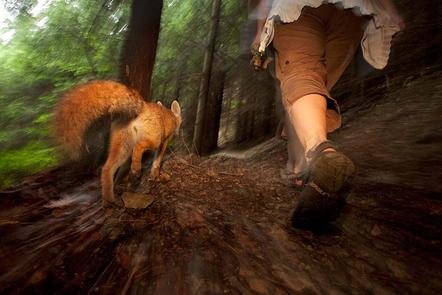
Going for a walk
After some time, the vixen developed so much trust that she used to accompany Klaus Echle and the scientist for parts of their walks.
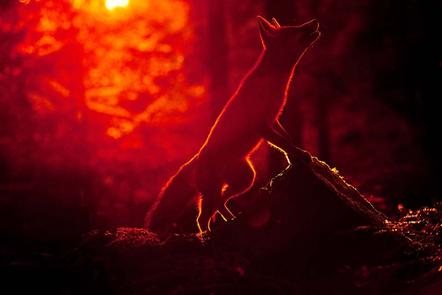
Evening Light
In the last glow of the evening light the name "red fox" acquires quite a special meaning
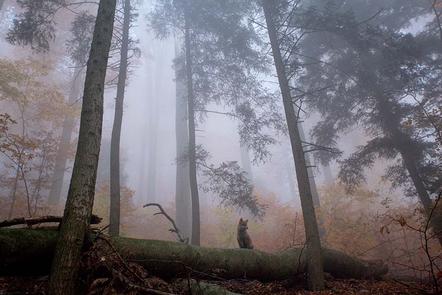
Raised Look-out Point
Many wild animals, including the fox, use any kind of elevation, such as fallen trees, roots or rocks, to observe their surroundings. From her high vantage point "Sophie" spotted walkers and cyclists long before her human company would notice them.
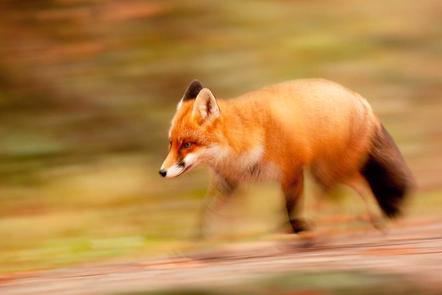
Schnürend - Running a Straight Line
The true sense of the German word "schnüren" (Schnur meaning string) reveals itself only on muddy ground or in the snow. Like pearls on a piece of string the foot prints run in a straight line.
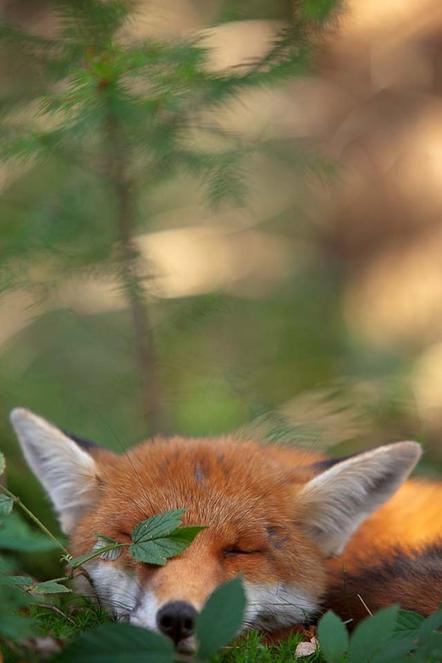
Siesta
Completely relaxed, the vixen has a siesta on a sunny, moss-covered rock.
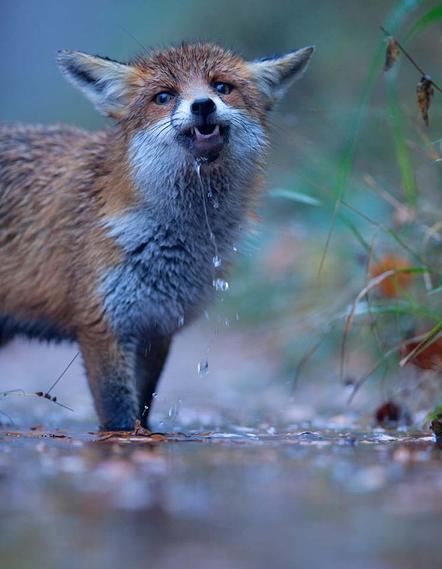
Thirsty
Through the close contact with the vixen and observing her daily routine, even the forest ranger, who knows the place well, discovered springs he had not known of before.
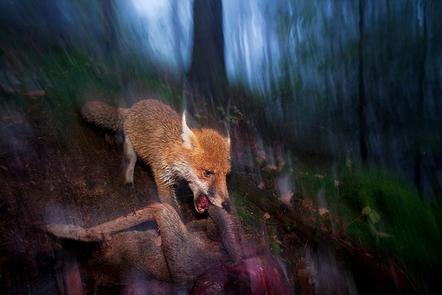
Greedy
Contrary to many stories, roe deer are actually not the main prey of foxes. A dead deer or other animal is a much welcomed meal which can last for many days. Smaller pieces of food are deposited for meagre times and dug up again later. The type of food varies according to seasons and supply. In late summer and autumn foxes mainly feed on fruits.
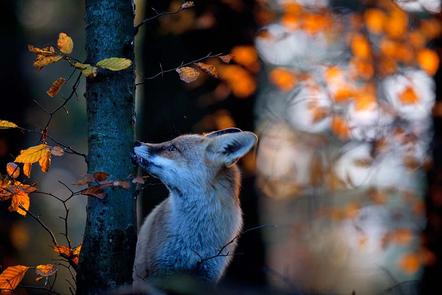
Last Glow of Leaves
The intense glow of leaves reveals that the end of autumn is near. For the young foxes it is now time to find their own territory
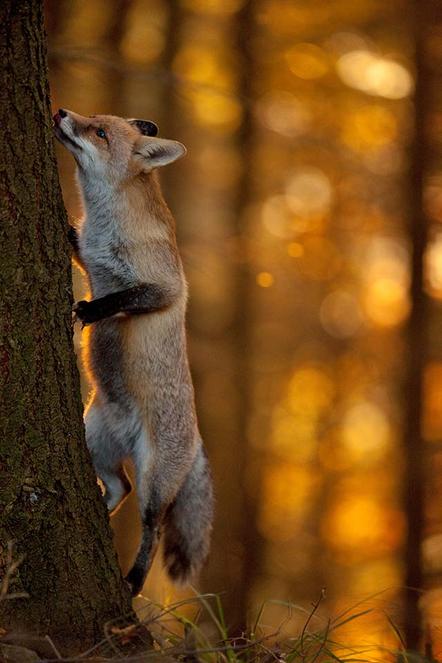
Autumn
In autumn we had some particularly nice encounters with "Sophie". The seasonal atmospheric light and the changing nature seemed to be reflected in the vixen's coat
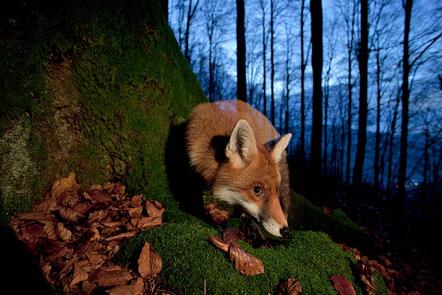
The blue hour
As is the case with many wild animals, the vixen's main period of activity was in the hours between day and night.
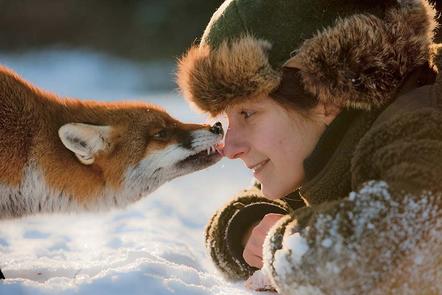
Fox kiss
In early December the encounter with "Sophie" came to an end. One day she did not turn up. It is likely that she left to find her own territory or joined a male. Or maybe she was driven away by a stronger or older fox.


